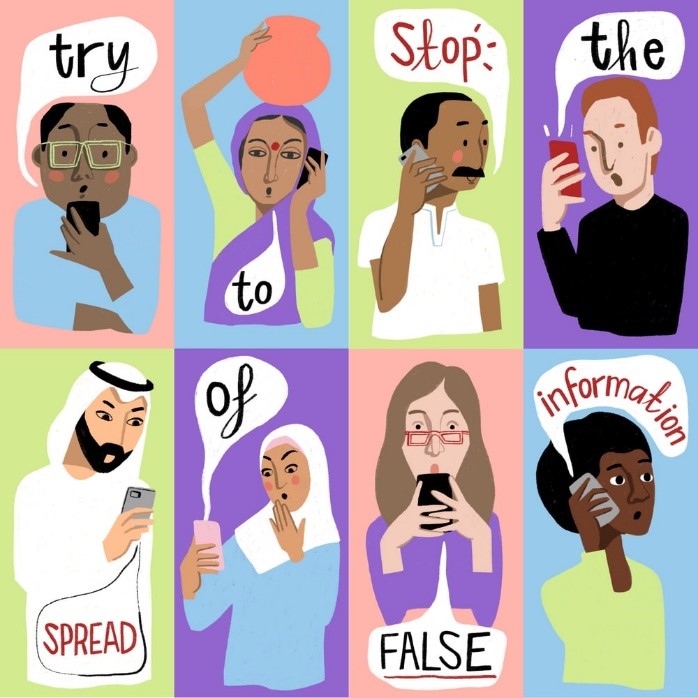As COVID-19 statistics in the United States to rise, misinformation and a general sense of confusion are running rampant across the country, further impeding our ability to heal. It is understandable how this has happened: the proliferation of incorrect data on the internet, which is frequently mixed in with information that is accurate, can make it difficult to parse fact from fiction.
While we try and prevent infection in ourselves and in others, this incorrect info can get in the way of our ability to protect our health and health of the people we care about. It is difficult to discern the precise trajectory that COVID-19 will take over the next few months, and the outcome will likely be influenced by a combination of factors, such as individual behavior and the development of a vaccine (or lack thereof). In the meantime, there are a handful of things we can do to help distinguish truth from lie.
First and foremost, it is vital that we check our sources. Regardless of where you fall on the political spectrum, companies will try and take advantage of online algorithms to present you with headlines that will shock and upset you in order to get you to click, regardless of the truth. Before you believe something that you’ve seen on Facebook or Twitter, try a couple basic litmus tests. Google it – see what other sources are saying. News websites are best. The New York Times is one source that, while controversial in some circles, is worth checking out. Though it does have a left-leaning bias, particularly in its opinion pieces, its news reportage is deeply-scrutinized and generally considered highly factual. Of course, if the New York Times is a no-go for you, feel free to look to other sources. There are absolutely things you can do to evaluate a source’s credibility on your own.
Before I get to those tips, though, I want to emphasize that with COVID-19, it is important to pay particular attention to articles that defer to the authority of doctors and other medical health professionals. Look at more than one article if you can and see if you can discern whether or not there is some sort of medical consensus. If someone differs, try looking them up and seeing if you can find any potential motive or hidden bias that could be incentivize them to bend the truth to their own benefit.
In most cases, these steps alone will suffice. But if you are still uncertain, or if you are a particularly skeptical individual, try looking up fact-checking websites. There are websites, such as mediabiasfactcheck.com, that allow you to look up different sources and will give a breakdown of the website’s reliability (as evaluated by their use of emotionally charged language and consistency of factual information), their history, and what is known of where they get their funding.
For particular claims rather than sources alone, try looking at Snopes. Though imperfect, Snopes is generally considered one of the most reliable fact-checkers available. They are transparent with information on where their money comes from, and research into the rumors they’ve debunked (or confirmed) about figures from the right and left alike suggest that their work is done with a minimal amount of bias.
Lastly, don’t freak out if you discover that something you believed turns out to be false. If you are consistently receiving incorrect information from a single source, it may be time to reconsider that source’s credibility. But try not to dismiss the guidance of health officials just because they’ve updated their guidelines. Remember that the COVID-19 pandemic is a novel experience for us all. The research is still evolving, and the unfortunate truth is that only long-term trends may reveal whether or not some commonly-held conceptions are accurate. That is no reason to disregard what the best-available evidence is telling you, though. These limitations actually make it more important than ever to do everything you can whenever you can.
This may seem like a lot of work, and the truth is that it is tragic and frustrating that there are people out there attempting to spread false information for no better reason than furthering their personal goals and causing panic.
But remember, it is ultimately better to err on the side of being abundantly cautious. Regardless of where you fall on the political spectrum, or whether you even believe that COVID-19 is a severe danger, I encourage you to do your own fact-checking so that you can be as confident as possible in the conclusions you draw.
It takes time, and it takes effort. But at the end of the day, the truth is worth it.



